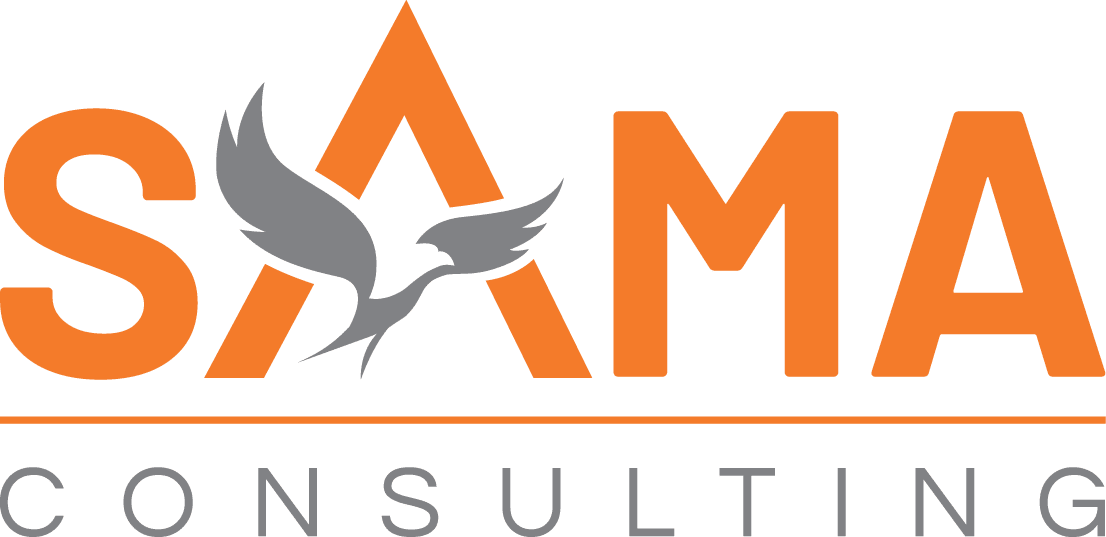
What is Infor CloudSuite? A Comprehensive Guide
Introduction
What is Infor CloudSuite? Infor CloudSuite is a comprehensive cloud-based ERP solution designed to meet the diverse needs of modern businesses. It integrates various functionalities such as financial management, supply chain management, and human capital management into a single, cohesive platform.
Key takeaway: Infor CloudSuite offers a flexible, scalable, and secure environment that enhances productivity and drives growth for businesses across multiple industries. With its modular design and robust deployment options, it provides the tools needed to streamline operations and stay competitive in today’s fast-paced market.
Understanding Infor CloudSuite
Enterprise Resource Planning (ERP) Systems enable organizations to manage and automate various business processes through a unified software platform. These systems integrate core functions such as finance, supply chain, human resources, and customer relationship management, streamlining operations and improving efficiency.
Infor CloudSuite is a robust ERP solution designed to meet the needs of modern businesses across diverse industries. It stands out in the ERP landscape with its comprehensive suite of functionalities and cloud-based deployment model.
Are you seeking advisory services for Infor CloudSuite?
Sama can streamline the implementation of Infor CloudSuite by offering expert advisory services, data migration support, and customized solutions to optimize system performance and business processes.

Core Components of Infor CloudSuite
Enterprise Resource Planning (ERP)
ERP serves as the backbone of any organization, and Infor CloudSuite offers a sophisticated solution for managing core business processes.
- Financial Management:
- General Ledger: The foundation of financial accounting, capturing and processing financial transactions.
- Accounts Payable and Receivable: Efficiently managing supplier invoices and customer payments.
- Financial Reporting and Analytics: Generating comprehensive financial reports and performing in-depth analysis.
- Cash Management: Optimizing cash flow through forecasting, planning, and management.
- Fixed Assets: Tracking and managing the lifecycle of fixed assets.
- Consolidation: Combining financial data from multiple entities for a consolidated view.
- Tax Management: Ensuring compliance with tax regulations and optimizing tax liabilities.
- General Ledger: The foundation of financial accounting, capturing and processing financial transactions.
- Supply Chain Management (SCM):
- Demand Planning: Forecasting future demand for products or services to optimize inventory levels and production.
- Procurement: Efficiently sourcing and purchasing materials, goods, and services.
- Inventory Management: Controlling inventory levels, minimizing stockouts, and reducing carrying costs.
- Order Management: Processing customer orders, managing order fulfillment, and ensuring timely delivery.
- Distribution and Logistics: Planning and executing the movement of goods from the point of origin to the final destination.
- Transportation Management: Optimizing transportation routes, carrier selection, and freight costs.
- Human Capital Management (HCM):
- Talent Management: Attracting, developing, and retaining top talent.
- Workforce Management: Scheduling, time and attendance tracking, and labor cost management.
- Payroll and Benefits Administration: Accurate and timely payroll processing and benefits administration.
- Performance Management: Setting goals, tracking performance, and providing feedback.
- Learning Management: Delivering and tracking employee training and development.
- Project Management:
- Project planning, scheduling, and execution.
- Resource allocation and management.
- Project financials and cost control.
- Portfolio management and prioritization.
Customer Relationship Management (CRM)
Infor CloudSuite CRM focuses on building strong customer relationships and driving sales growth.
- Sales Management:
- Sales forecasting and pipeline management.
- Opportunity management and qualification.
- Sales force automation and productivity tools.
- Customer relationship management and account planning.
- Sales analytics and performance metrics.
- Customer Service and Support:
- Case management and resolution.
- Knowledge management and self-service.
- Customer support automation and ticketing.
- Customer feedback and satisfaction management.
- Marketing Automation:
- Campaign management and execution.
- Lead generation and nurturing.
- Marketing analytics and ROI measurement.
- Email marketing and automation.
Product Lifecycle Management (PLM)
Infor CloudSuite PLM supports product innovation and development from concept to commercialization.
- Product Development:
- Product concept generation and ideation.
- Product design and engineering.
- Collaboration and design review.
- Bill of materials (BOM) management.
- Product Data Management:
- Product information management and standardization.
- Digital asset management.
- Configuration management.
- Change management.
- Regulatory Compliance:
- Compliance management and risk assessment.
- Quality assurance and control.
- Regulatory information management.
- Certification and approval processes.
Enterprise Asset Management (EAM)
Infor CloudSuite EAM provides a comprehensive solution for managing and optimizing an organization’s physical assets.
- Maintenance Management:
- Work order management: Creating, scheduling, and tracking maintenance tasks.
- Preventive maintenance: Implementing planned maintenance activities to prevent equipment failures.
- Corrective maintenance: Addressing equipment breakdowns and restoring asset functionality.
- Predictive maintenance: Using data analytics to predict equipment failures and schedule maintenance proactively.
- Mobile maintenance: Enabling field service technicians to access and update asset information on mobile devices.
- Asset Performance Management:
- Asset criticality assessment: Identifying and prioritizing critical assets based on their impact on operations.
- Asset reliability analysis: Evaluating asset performance and identifying areas for improvement.
- Root cause analysis: Investigating equipment failures to prevent recurrence.
- Asset lifecycle management: Managing the entire lifecycle of assets, from acquisition to disposal.
- Inventory Management:
- Spare parts management: Managing inventory levels of spare parts to minimize stockouts and excess inventory.
- Inventory optimization: Analyzing inventory usage patterns to optimize stock levels.
- Inventory valuation: Determining the value of inventory for financial reporting.
- Asset Information Management:
- Asset register: Maintaining a centralized repository of asset information.
- Asset history tracking: Recording asset maintenance history, repairs, and modifications.
- Asset documentation management: Storing and managing asset-related documents.
Warehouse Management System (WMS)
Infor CloudSuite WMS optimizes warehouse operations and inventory management.
- Inventory Control:
- Cycle counting: Regularly counting inventory items to verify accuracy.
- Inventory valuation: Determining the value of inventory for financial reporting.
- Stock level management: Maintaining optimal inventory levels to balance supply and demand.
- Lot and serial number tracking: Tracking product batches and individual items for quality control and traceability.
- Order Fulfillment:
- Order picking and packing: Efficiently selecting and preparing items for shipment.
- Shipping and receiving: Managing inbound and outbound shipments.
- Returns processing: Handling returned items and issuing refunds or replacements.
- Warehouse Optimization:
- Space utilization: Maximizing warehouse space efficiency.
- Labor management: Optimizing labor resources and productivity.
- Put-away and replenishment: Efficiently storing and restocking inventory.
- Warehouse automation: Integrating automated equipment and systems for enhanced efficiency.
Manufacturing Execution System (MES)
Infor CloudSuite MES provides real-time visibility and control over manufacturing operations.
- Production Scheduling:
- Production planning: Developing production schedules based on demand, capacity, and resources.
- Scheduling optimization: Creating efficient production schedules to minimize lead times and maximize output.
- Capacity planning: Determining production capacity and balancing workloads.
- Shop floor scheduling: Managing real-time production activities and adjustments.
- Quality Management:
- Quality control: Implementing inspection and testing procedures to ensure product quality.
- Quality assurance: Establishing and maintaining quality standards and processes.
- Quality data management: Collecting and analyzing quality data to identify trends and improvement opportunities.
- Corrective action and preventive action (CAPA): Implementing corrective actions to address quality issues and preventive measures to prevent recurrence.
- Shop Floor Control:
- Labor management: Tracking employee time and attendance, and calculating labor costs.
- Equipment monitoring: Monitoring equipment performance and utilization.
- Production data collection: Collecting real-time production data for analysis and reporting.
- Material management: Managing the flow of materials through the production process.
- Traceability: Tracking product components and processes for quality and compliance purposes.
Financials
Infor CloudSuite Financials provides comprehensive financial management capabilities.
- General Ledger:
- Chart of accounts: Defining the structure of financial accounts.
- Journal entries: Recording financial transactions.
- Account reconciliation: Matching account balances with supporting documents.
- Financial reporting: Generating financial statements and reports.
- Accounts Payable and Receivable:
- Invoice processing: Managing supplier invoices and payments.
- Customer invoicing and collections: Creating and managing customer invoices and payments.
- Cash application: Applying customer payments to invoices.
- Dispute resolution: Resolving invoice discrepancies and disputes.
- Financial Reporting and Analytics:
- Financial statement generation: Creating balance sheets, income statements, and cash flow statements.
- Budgeting and forecasting: Developing financial plans and projections.
- Financial analysis: Analyzing financial performance and identifying trends.
- Management reporting: Providing financial information to management for decision-making.
Deployment Options for Infor CloudSuite
Infor CloudSuite offers flexible deployment options to cater to diverse business needs. When deploying Infor CloudSuite, you can choose between public and private cloud environments, each offering unique benefits and potential drawbacks.
Public Cloud
Advantages:
- Cost-Effective: Lower upfront costs since resources are shared among multiple tenants.
- Scalability: Easily scalable based on demand, accommodating business growth seamlessly.
- Maintenance: Reduced IT overhead with maintenance and updates managed by Infor.
Disadvantages:
- Security Concerns: Shared environment may raise security and compliance concerns for sensitive industries.
- Customization Limits: Limited customization compared to private clouds.
Private Cloud
Advantages:
- Enhanced Security: Dedicated resources provide increased security, suitable for industries with strict compliance requirements.
- Customizable: Greater flexibility for customization to meet specific business needs.
- Performance: Generally offers better performance due to dedicated infrastructure.
Disadvantages:
- Cost: Higher initial investment and ongoing costs due to dedicated resources.
- Maintenance Responsibility: Requires more internal IT resources for management and maintenance.
Deciding between public vs private cloud depends on your organization’s priorities regarding cost, security, customization, and scalability. Each option presents its own set of advantages and challenges that must be weighed carefully.
Are you looking for Infor CloudSuite consulting services?
Sama can help by providing expert consulting and implementation support to maximize the efficiency and effectiveness of your Infor CloudSuite deployment.

Benefits of Using Infor CloudSuite
Infor CloudSuite provides a robust suite of ERP functionalities, eliminating the need for standalone add-ons. This all-in-one approach simplifies your tech stack, reducing complexity and cost.
1. Comprehensive ERP Functionalities
From financial management to supply chain operations and human capital management, Infor CloudSuite covers every aspect of business operations under one platform.
2. Automatic Upgrades
The system receives automatic upgrades approximately every 30 days. This ensures your business always has access to the latest features and improvements without manual intervention.
3. Uptime Guarantee
Infor CloudSuite offers a service level agreement (SLA) guaranteeing 99.5% uptime. This high reliability ensures minimal disruption to your operations, enhancing productivity.
These features make Infor CloudSuite an attractive option for businesses looking to streamline their processes and ensure seamless operations.
Data Integration and Security in Infor CloudSuite
Secure Data Integration with ADFS
Data integration within Infor CloudSuite is streamlined through Microsoft Active Directory Federation Services (ADFS). ADFS facilitates secure data integration by enabling single sign-on (SSO) capabilities, ensuring that users can access various applications within the suite without repeated logins. This not only enhances user experience but also strengthens security by centralizing authentication processes.
Robust Security Measures
Infor implements robust security measures to maintain data integrity throughout its lifecycle:
- Encryption: Both at rest and in transit, data is encrypted to prevent unauthorized access.
- Compliance: The platform adheres to stringent regulations such as HIPAA and SOC 1, ensuring security compliance in Infor CloudSuite.
- Access Controls: Role-based access controls (RBAC) are employed to ensure that only authorized personnel have access to sensitive information.
- Monitoring and Auditing: Continuous monitoring and regular audits help detect and mitigate potential security threats promptly.
These measures collectively provide a secure environment for businesses, safeguarding critical data against breaches and ensuring compliance with industry standards.
Pricing Models and Support Options
When considering pricing models for Infor CloudSuite, the platform offers subscription-based options tailored to specific organizational needs. These models typically depend on either:
- User count: Charges are based on the number of active users within the organization.
- Total employees: Pricing is determined by the total headcount in the organization, regardless of individual usage.
Both approaches provide flexibility, allowing businesses to scale their operations without excessive costs.
Infor CloudSuite ensures seamless adoption by offering 24/7 technical support. This round-the-clock assistance guarantees that any issues or queries are addressed promptly, minimizing downtime and disruptions. Additionally, Infor provides extensive training resources to help users maximize the platform’s functionalities. These resources include:
- Online tutorials
- Documentation
- Webinars and workshops
These tools enable organizations to fully leverage Infor CloudSuite’s capabilities, ensuring a smooth transition and effective utilization.
Latest Release And Updates Of The Platform
Infor CloudSuite’s latest release version introduces a range of enhancements designed to elevate user experience and expand functionality. These updates include:
- Enhanced User Interface: A more intuitive and user-friendly interface to streamline navigation and improve accessibility.
- Advanced Analytics: New analytical tools that offer deeper insights into business operations, aiding in better decision-making processes.
- AI and Machine Learning Integrations: Incorporation of AI-driven features for predictive analytics and automated processes, enhancing efficiency.
- Mobile Accessibility: Improved mobile application support ensuring seamless access to critical data on-the-go.
- Expanded Industry-Specific Modules: Additional modules tailored for specific industries such as healthcare, automotive, and hospitality, providing specialized functionalities.
Example: The latest update in the healthcare module includes advanced patient management features that allow for better scheduling, billing, and compliance tracking.
These enhancements aim to provide a more robust and flexible ERP solution, aligning with the evolving needs of modern businesses.
Conclusion
Exploring the potential of Infor CloudSuite can be a transformative step for your organization. The platform’s robust features and flexible deployment options make it a standout ERP solution for various industries.
Key advantages to consider:
- Comprehensive ERP functionalities without the need for standalone add-ons.
- Automatic upgrades ensuring you always have access to the latest features.
- High uptime guarantees to keep your operations running smoothly.
- Strong security measures protecting data integrity.
For businesses at different stages of their digital transformation journey, consulting with experts can be invaluable. RPI Consultants specialize in providing tailored solutions based on specific needs. They can guide you through the implementation process, ensuring that Infor CloudSuite is optimized for your unique requirements.
Taking the next step with Infor CloudSuite offers not just an ERP system but a comprehensive approach to enhancing productivity and driving growth.
Need help integrating Infor Cloud Suite? Click here to know mroe
Are you looking for Infor CloudSuite consulting services?
Sama can help by providing expert consulting and implementation support to maximize the efficiency and effectiveness of your Infor CloudSuite deployment.

